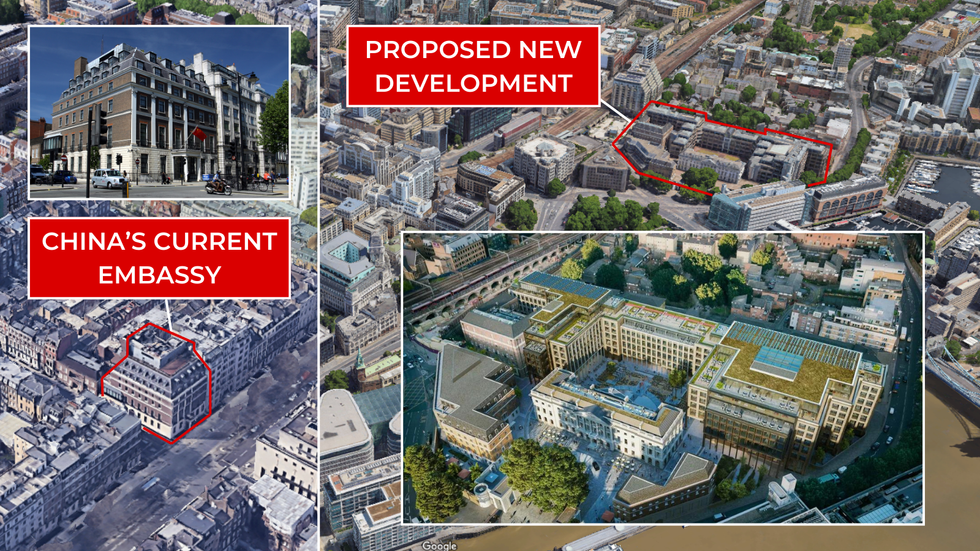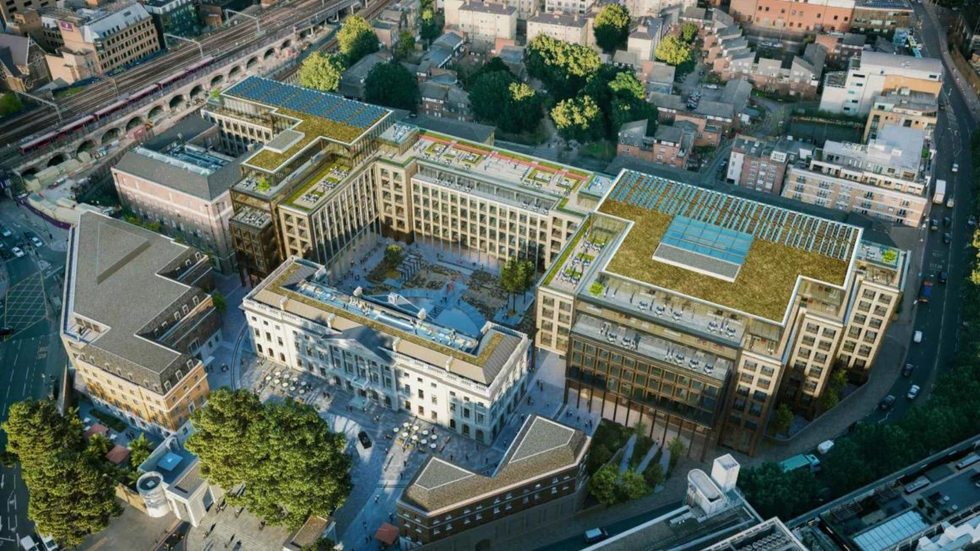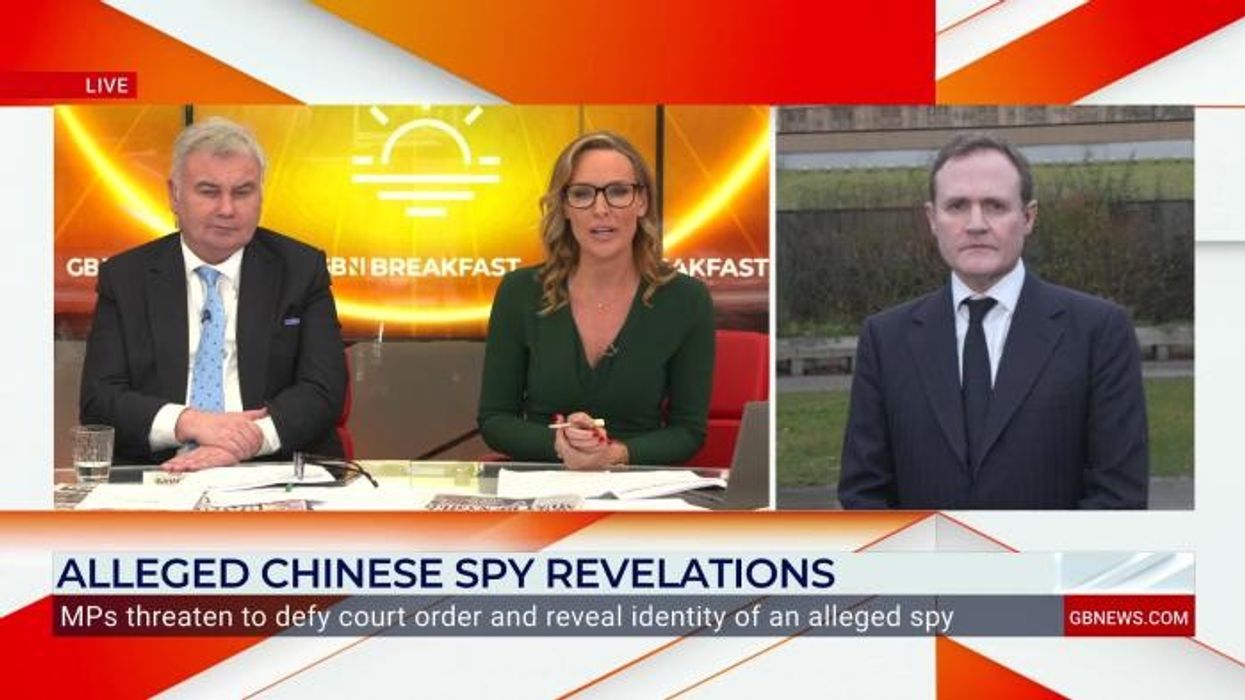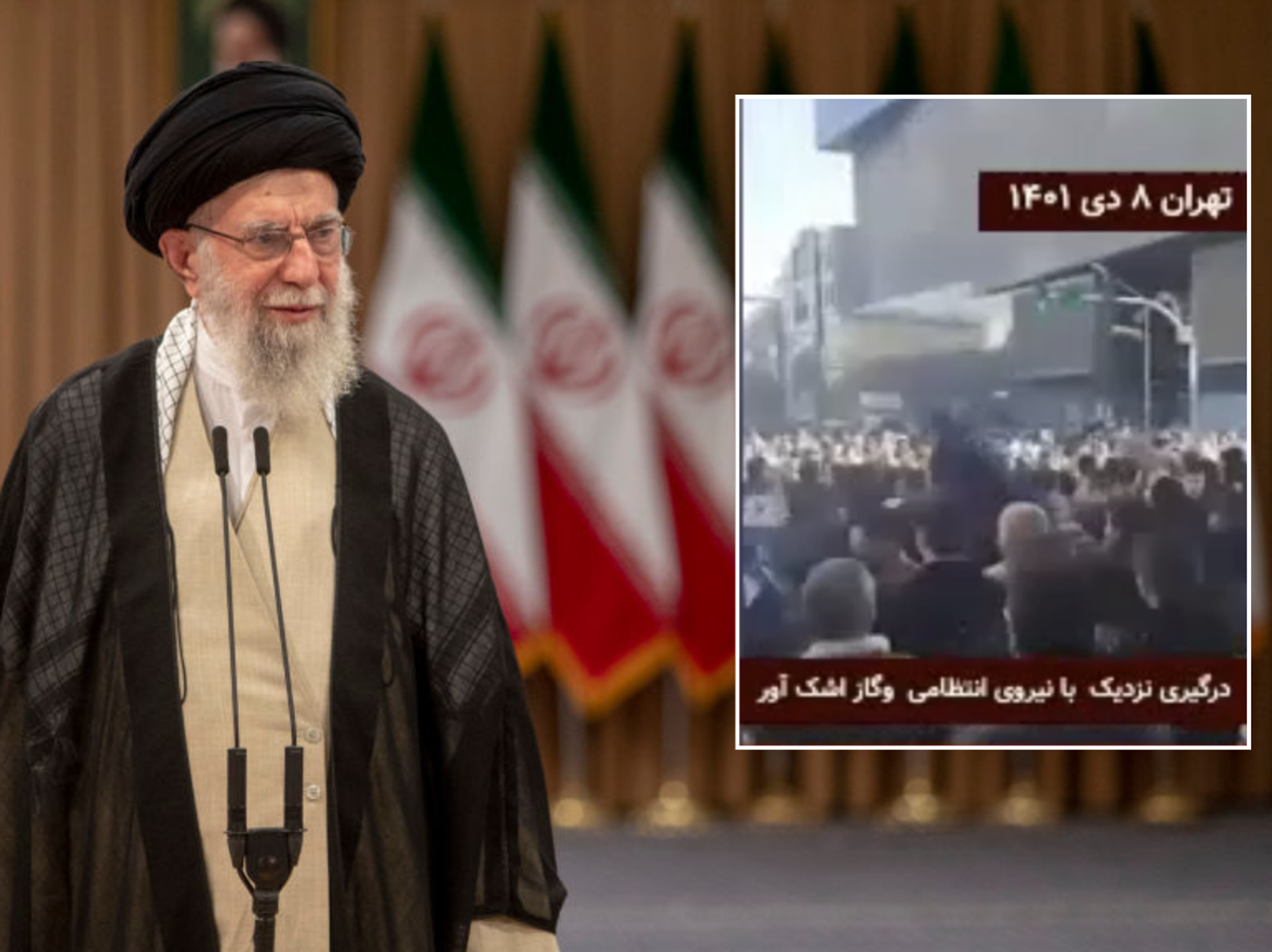Met Police dropped objections over Chinese mega embassy after seeing Beijing-backed study
Tower Hamlets council was forced to withdraw its opposition to the embassy plans after the Met Police's change of position
Don't Miss
Most Read
The Metropolitan Police has abruptly dropped its objections to China's planned "super embassy" in London after reviewing a Beijing-funded research document, contradicting its own recent warnings about public safety risks.
Scotland Yard's unexpected U-turn came shortly after its officers had warned the proposed embassy at Royal Mint Court posed "serious and significant" risks to public safety.
The force changed its stance after examining a three-year-old technical document commissioned and paid for by China, which had been submitted during Beijing's first planning application in 2022.
The dramatic reversal has forced Tower Hamlets council to withdraw its objections to the plans for the site near the Tower of London, potentially clearing the way for the embassy's approval.

The site sits at an "iconic junction" of Tower Hill and Tower Bridge Road, handling over 50,000 vehicle movements daily
| CBRE/GOOGLE/WIKIMEDIA COMMONSThe Met's decision came days after Shadow Chancellor Rachel Reeves returned from Beijing.
At a planning meeting on December 9, Chief Inspector David Hodges issued stark warnings about the embassy plans' impact on public safety.
He cautioned that protesters would "highly likely spill into the road" if more than a small number gathered at the location.
The site sits at what Hodges called an "iconic junction" of Tower Hill and Tower Bridge Road, handling over 50,000 vehicle movements daily.
MORE LIKE THIS:
- Starmer left waiting by the phone as Trump opts to call Saudi Crown Prince and China's Xi Jinping instead
- REVEALED: The 10 countries that will be worst hit by Trump's tariffs as shock graph hides nasty surprise for Britain
- ‘It’s so embarrassing!' Journalist fumes at Rachel Reeves for saying the UK has ‘no choice’ but to engage with China
The Chief Inspector emphasised the critical importance of the Tower Bridge river crossing to London's transport network.
He warned that any demonstration would have a "serious and significant effect to not only the local area, but also wider London" due to the road's status as an arterial route.
These concerns led Tower Hamlets strategic development committee to reject the scheme at the December meeting.
On January 17, Commander Elisabeth Chapple wrote to the planning inspectorate revealing the Met's change of position.
The force had reviewed a "pedestrian comfort level assessment" produced by Arup and Cundall in February 2022.
The document, which Tower Hamlets "provided" to the Met, rejected Transport for London's original concerns about protest space.
Using alternative crowd modelling methods, the report argued up to 4,500 people could fit in streets around the site, with 1,920 directly in front.
The analysis noted this far exceeded the maximum protest sizes of 500-800 people seen at China's existing embassy in Portland Place.
Commander Chapple acknowledged her colleagues' recent objections but said the force was "advised" to consider the document as "material consideration".
Tower Hamlets council was forced to withdraw its opposition to the embassy plans after the Met's change of position.
Mike Ibbott, representing the council, submitted a report to the planning inspectorate confirming they were "no longer in a position" to argue against the plan.
The council had planned to seek "expert evidence" from the Metropolitan Police given its previous "very strong objections".
However, the force's reversal left the council with no choice but to change its stance.
A council spokesman said: "The decision made by the council's strategic development committee on December 9, was based on the position of the Metropolitan Police at the time. However, since the Metropolitan Police have now withdrawn their objection, the council can no longer use that as a reason for refusal."
The embassy plans have become entangled with Labour's diplomatic strategy since the party's election victory in July 2024.
China submitted a new application after Sir Keir Starmer's victory, warning that hopes for improved trade relations depend on the scheme's outcome.

The embassy plans have become entangled with Labour's diplomatic strategy since the party's election victory in July 2024
| CBREStarmer admitted to ordering ministers to "call in" the scheme, giving the Government final say following a call with President Xi.
The £225million site, purchased by Beijing in 2018, is designed to rival Washington's embassy complex along the Thames.
Foreign Secretary David Lammy and Home Secretary Yvette Cooper, have signalled their support for the project.
China had appeared to abandon the proposal after its first application was rejected amid concerns about protests and potential "acts of terrorism".
Luke de Pulford of the Inter-Parliamentary Alliance on China criticised the Met's sudden change in position.
He said: "This bizarre volte-face from the police has all the hallmarks of a government intervention. Less than a month ago the police were emphatic that the area wasn't safe."
De Pulford added: "We will prove the police right in their initial assessment on February 8 where thousands of protesters will descend upon the site to prove the point."
The Met defended its position, stating it was a matter for the local authority and could not elaborate on third-party documents.
A Met spokesman said: "In December we objected to this application due to the potential impact of protests on local roads. The borough council has since re-introduced an assessment of the surrounding area's ability to accommodate protests - this was not available at the point our objection was made."











